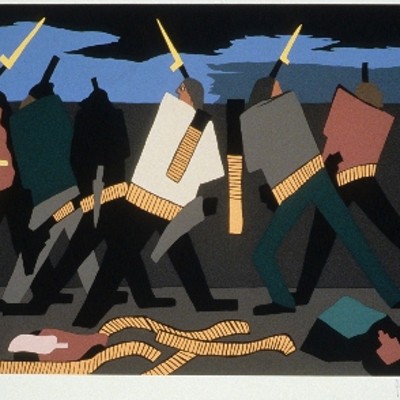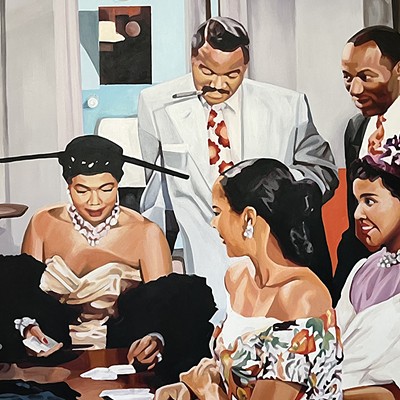ON MONDAY, ONE year to the day after Carol Carpenter was hired as executive director of the Tucson Downtown Alliance business improvement district (BID), the mayor and City Council called her on the carpet. Citing City Manager Luis Gutierrez's complaints of faulty reports, submitted late, the mayor and Council voted unanimously to have Gutierrez conduct an audit of the organization's finances and performance.
The Alliance, a quasi-governmental, quasi-private body financed with city money and assessments on downtown properties, has had a tumultuous year since it was charged by the Council to help revitalize downtown. The embarrassing public dressing down came just minutes after Carpenter presented the Council with her report on downtown's progress during the eight months that the BID has been actively working the streets. Carpenter, a former city staffer who helped to form the BID and then took a job as its head, read off a series of statistics that painted a rosy picture of downtown.
She asserted that with her crew of "purple people" patrolling the streets, criminal activity downtown had dropped 80 percent. (Tucson Downtown Alliance spokeswoman Sereva Ball later said that those statistics were not obtained from the police, but from the BID workers' own logs.) Carpenter also cited pounds of garbage removed, and linear footage of curbs painted. She said office vacancies had dropped to 12 percent, down from 28 percent two years ago. She claimed that news stories about downtown, carried in newspapers and on television and radio in the last year, translated into $327,000 worth of paid advertising.
"Anything that needs to be done to make business better and easier for people downtown has been our mission," Carpenter said.
Nevertheless, Council member Steve Leal said business people downtown have complained that Carpenter's put too much emphasis on trying to attract "national chains who pay higher rent.... There's the feeling that there's not enough emphasis on services to the existing downtown businesses." He also complained that the BID board is top-heavy with property owners, and that the group should have split the board 50-50 between property and business owners. The assessment fees, he added, are disproportionately borne by the little guy.
Council member Jose Ibarra said that the stiff assessment fees have forced some small businesses to choose between making payroll or paying the tax. Not paying the BID tax, which appears semi-annually on the government tax bill, carries the same penalties as non-payment of other taxes.
After the meeting, a band of BID supporters complained that the City Council had not given them a chance to describe how the organization has helped their businesses. Alliance spokeswoman Ball said that the upcoming audit was not unexpected, but that she believed the group was being unfairly criticized while still in its infancy.
"We've been up and running eight months," she said. "We're working like crazy."
She said that Carpenter has indeed been trying to recruit outside businesses, but she's also concentrated on marketing local stores, staging local events and helping business owners cut bureaucratic red tape. And she noted that the composition of the much-criticized BID board will change this Tuesday, when the board holds elections.
Co-chairs Thom Laursen and Sheila King will step down from their posts, and two smaller Congress Street business owners have been nominated to replace them: Richard Oseran, owner of Hotel Congress, and Margo Susco, owner of Hydra. Both Laursen and King had come in for criticism on conflict-of-interest charges. Lawyer Laursen doubled as the paid lobbyist for Daystar, the developer that submitted a now-rejected proposal for Rio Nuevo South, at the same time that the Alliance officially took a position in favor of the Daystar project. King, a real-estate executive, rented the Alliance an office in the building that her company manages.
The changes on the board are "absolutely" in response to criticism, Ball said. The slate of new nominees also includes arts and culture types such as Giulio Scalinger, manager of the Screening Room on Congress Street, John McNulty, an artist who runs the gift shop at the Tucson Museum of Art, and Ken Scoville, a local historian who runs tours downtown.













